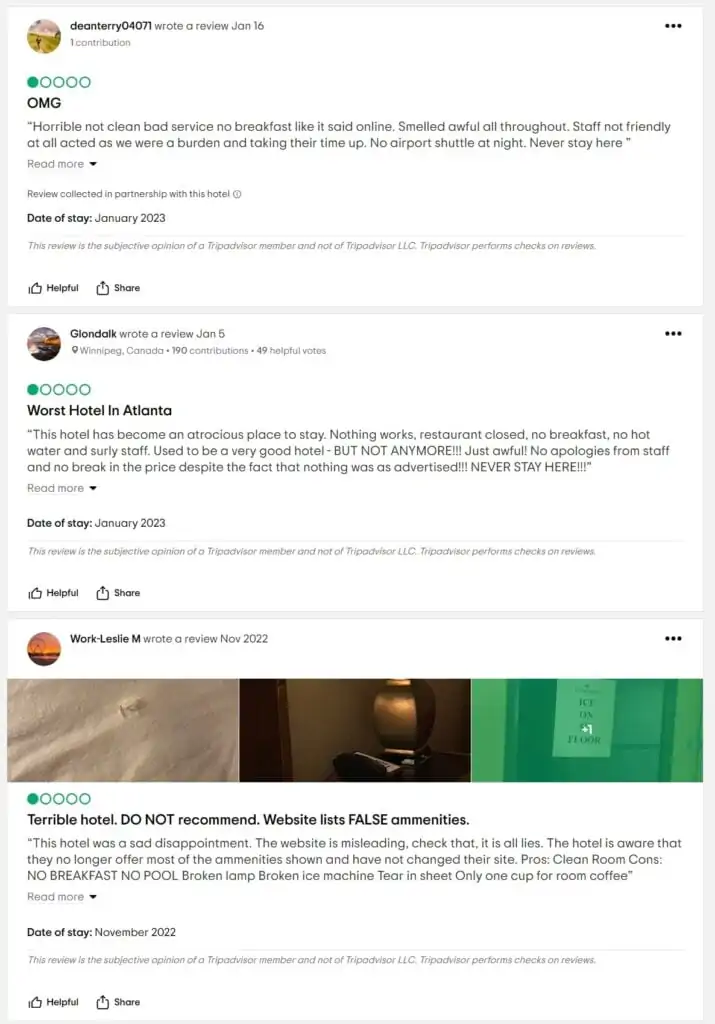How Are Negative Hotel Reviews Affecting You?
Table of Contents
ToggleHotel reviews are pivotal in shaping a hotel’s revenue stream. In today’s digital age, potential guests often rely heavily on online reviews to make informed decisions. The influence of these reviews can be profoundly positive or severely negative, depending on their sentiment and the overall reputation of the hotel. This article delves into the dual impact of hotel reviews, strategies for managing feedback, and ways to enhance guest experiences to maximize revenue.
Positive Reviews: A Boon for Revenue
Driving Bookings

Positive reviews significantly boost a hotel’s appeal. When potential guests see glowing feedback, they’re more likely to choose that hotel over competitors. Reviews highlighting excellent service, cleanliness, and overall satisfaction can lead to increased bookings. This not only fills rooms but also contributes to higher revenue through ancillary services such as dining, spa, and other amenities.
Enhancing Reputation
Positive reviews enhance a hotel’s reputation. A well-regarded hotel attracts more first-time visitors and fosters loyalty among past guests. Satisfied customers often return, leading to repeat business and steady revenue. Additionally, happy guests are likely to recommend the hotel to friends and family, expanding the hotel’s customer base through word-of-mouth marketing.
Negative Reviews: A Revenue Risk
Discouraging Bookings
Negative reviews can deter potential guests, leading to a decline in bookings. Common complaints about poor service, cleanliness issues, or unprofessional staff can drive guests to choose competitors instead. This immediate impact on booking rates directly affects the hotel’s revenue.
Damaging Reputation
A consistent stream of negative reviews tarnishes a hotel’s reputation. This damage can be long-lasting, as potential guests often research a hotel’s reviews extensively before making a booking decision. A poor reputation not only leads to fewer new guests but also discourages repeat visits, further reducing revenue.
Strategies for Managing Reviews
Active Engagement
Hotels must actively manage and respond to reviews to mitigate the impact of negative feedback and amplify the benefits of positive reviews. Responding to reviews demonstrates that the hotel values guest feedback and is committed to improving the guest experience. This engagement builds trust with potential guests.
Timely Responses
Responding promptly to reviews, whether positive or negative, shows that the hotel is attentive and cares about guest satisfaction. Acknowledging positive reviews with gratitude reinforces a positive image, while addressing negative reviews with solutions can mitigate potential damage.
Using Reviews for Improvement
Identifying Common Issues
Hotels can use reviews to identify common issues and areas for improvement. By analyzing feedback, management can pinpoint recurring complaints and take corrective action. This proactive approach not only enhances the guest experience but also reduces the likelihood of negative reviews in the future.
Implementing Changes
Addressing issues highlighted in reviews demonstrates a commitment to guest satisfaction. Whether it’s improving cleanliness, enhancing customer service, or upgrading amenities, making tangible changes based on guest feedback can lead to more positive reviews and increased bookings.
Conclusion
Hotel reviews have a substantial impact on revenue. Positive reviews can significantly drive bookings and enhance a hotel’s reputation, while negative reviews can deter potential guests and harm the hotel’s image. By actively managing reviews, responding to feedback, and using reviews to identify and address areas for improvement, hotels can mitigate the negative effects and capitalize on the benefits of guest feedback. This strategic approach not only fosters a positive reputation but also boosts revenue through increased bookings and guest loyalty.
FAQs
What impact do positive hotel reviews have on bookings?
- Positive hotel reviews increase bookings by making the hotel more attractive to potential guests. They build trust and highlight the hotel’s strengths, encouraging more people to book a stay.
How can negative reviews affect a hotel’s reputation?
- Negative reviews can significantly damage a hotel’s reputation by highlighting shortcomings and deterring potential guests from booking. A poor reputation leads to fewer bookings and decreased revenue.
Why is responding to hotel reviews important?
- Responding to hotel reviews shows that the hotel values guest feedback and is committed to improving the guest experience. It helps build trust with potential guests and can mitigate the impact of negative reviews.
How can hotels use reviews to improve their services?
- Hotels can analyze reviews to identify common issues and areas for improvement. By addressing these issues, hotels can enhance the guest experience, leading to more positive reviews and increased bookings.
What are some effective ways for hotels to manage negative reviews?
- Effective ways to manage negative reviews include responding promptly and professionally, addressing the issues raised, and taking corrective actions to prevent future complaints.
Can hotel reviews influence repeat business?
- Yes, positive reviews can lead to repeat business by building a strong reputation and fostering guest loyalty. Satisfied guests are more likely to return and recommend the hotel to others.
